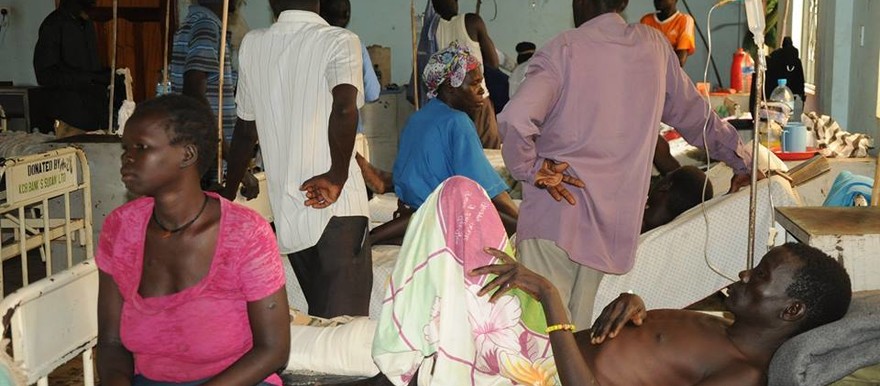SPLA sources have strongly denied a rumor that Equatorian patients have died at Giyada Military Hospital in suspicious circumstances, affirming that the hospital is for people of all tribes, while also confirming that the hospital is facing medicines shortages.
According to a reliable source at the hospital, some patients have died without assistance because there were no medicines or equipment to help them, but no patients have been targeted because of their tribe.
The military officer explained to Radio Tamazuj, “The economic crisis in this country has exploded into a public health emergency, now we are facing a lot of challenges here. There are no medicines. The hospital is empty, which is the biggest concern now because patients are brought and we do not have anything. Sometimes some of the patients die while we know this is something we could handle if there are medicines and equipment.”
He denied that some soldiers were left to die in the hospital because of their ethnic or regional background, claiming that the army treats all the soldiers and officers as members of the same family.
The medical source elaborated, “I am not aware of this allegation. Who told you this? From where did you hear this dangerous allegation? In SPLA, we do not see ourselves as tribes.”
“We see ourselves as colleagues and as doctors we are bound by ethics which obligates us to abstain from causing harm to others. Health professionals, whether they are operating under whatever circumstances do not compromise principles supporting several moral rules, including not to kill, not to cause pain or suffering to the patient, not incapacitate and do not deprive others of their goods of life,” added the officer, whose name is withheld because he was not authorized by the government to speak.
Likewise, Brig-Gen. Lul Ruai, the official spokesman of the army, said the rumor was “a lie that was brought to destroy the name of the SPLA.” Lul affirmed that the military hospital is ready to treat civilians “if there is medicine.”
“If there is propaganda that went around like that I wish to tell the citizens that this is not true. We have no intention to kill our citizens,” he said. “This is just rumors. Anybody who wants treatment should just come to the hospital because the medical cadres there are sons of South Sudan, they are from different tribes.”
Recently South Sudan has been witnessing rising use of hate speech and the rapid spread of rumors through mobile networks, online fake news sources and social media.
The UN Human Rights Chief has warned that the spread of hate speech in South Sudan is very dangerous. “Hateful ethnic rhetoric in South Sudan – particularly if it is exploited for political purposes – can have devastating consequences for entire communities, quickly spiralling into a cycle of revenge attacks,” the UN rights chief warned.
Related:
A report on Equatorian-Dinka relations in Aweil (1 Nov.) (Podcast in Arabic)
Atrocity photos – fake and real – increasingly used by S Sudanese propagandists (11 Oct.)




